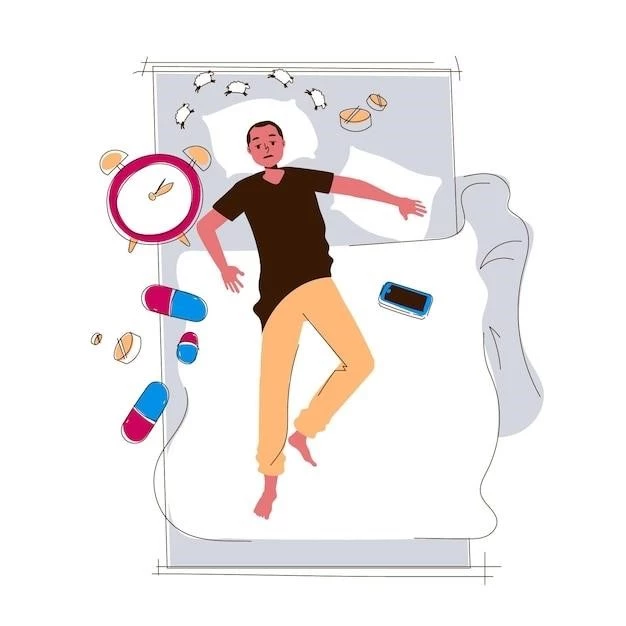Introduction to Procrastination
Procrastination, putting off intended action, is a universal phenomenon, characterized as a self-regulatory failure. It involves the voluntary delay of tasks despite potential negative consequences.
Definition and Characteristics
Procrastination is a common phenomenon where individuals voluntarily delay tasks despite knowing the negative repercussions. This self-regulatory failure often stems from factors like fear, perfectionism, and difficulty managing emotions. Researchers highlight procrastination as a significant issue impacting performance and well-being in various aspects of life.
Understanding Chronic Procrastination
Chronic procrastination involves consistently avoiding tasks despite potential negative outcomes. This behavior can be linked to various mental health issues and can significantly impact daily functioning.
Signs and Symptoms
Procrastination manifests through various signs and symptoms, including avoidance behaviors, delayed task completion, increased stress levels, and decreased productivity. Individuals may experience feelings of guilt, anxiety, and overwhelm when faced with tasks, perpetuating the cycle of avoidance.
Impact on Mental Health
The consequences of procrastination can take a toll on mental health, leading to increased stress, anxiety, and feelings of overwhelm. These impacts can exacerbate existing mental health issues and hinder overall well-being.
Health Implications of Procrastination
Procrastination can lead to negative impacts on personal, academic, and professional spheres, affecting mental well-being and overall productivity.
Research indicates that chronic procrastination may elevate stress levels and contribute to poor health behaviors, potentially exacerbating chronic diseases such as cardiovascular conditions. Understanding this link is crucial for health management.
Association with Mental Disorders
Procrastination can be linked to underlying mental health issues, such as anxiety, depression, and stress. Recognizing this association is essential for addressing both the behavioral patterns of procrastination and the individuals’ mental well-being.
Relationship Between Procrastination and Physical Health
The connection between procrastination and physical health highlights the potential negative impacts on overall well-being and the importance of addressing this issue for a healthier lifestyle.
Link to Chronic Diseases
Research suggests a potential link between chronic procrastination and an increased risk of various chronic diseases due to elevated stress levels and unhealthy behaviors. Addressing procrastination may play a role in overall health management.
Impact on Overall Well-being
Procrastination can have detrimental effects on overall well-being, leading to increased stress levels, decreased productivity, and feelings of dissatisfaction. Addressing procrastination is crucial for improving mental and physical health.
Research on Procrastination
Procrastination poses challenges to individuals’ productivity and performance, impacting various aspects of their lives. Researchers delve into the causes, consequences, and strategies to address this pervasive behavior.
Experts like Fuschia Sirois and Joseph Ferrari have conducted extensive research on procrastination, exploring its causes, consequences, and potential interventions. Their studies provide valuable insights into the complex nature of procrastination and its impact on individuals’ lives.
Studies and Researchers
Researchers like Fuschia Sirois and Joseph Ferrari have conducted comprehensive studies on procrastination, shedding light on its complexities, implications, and potential interventions. Their work contributes valuable insights to understanding the behavior and its impact on individuals.
Chronic procrastination poses challenges to productivity and well-being, affecting various aspects of life. Effective strategies and professional recommendations can help individuals overcome this pervasive behavior.
Overcoming Procrastination
Chronic procrastination can hinder productivity and well-being, impacting various areas of life. Effective strategies and professional recommendations can aid individuals in conquering this behavior and enhancing their overall performance.
Professional Recommendations
Experts recommend various approaches to tackle procrastination, such as goal-setting, time management strategies, breaking tasks into smaller steps, and addressing underlying emotional factors. Seeking professional guidance and support can also be beneficial in overcoming chronic procrastination.

Treatment for Chronic Procrastination
Chronic procrastination, if left unaddressed, can lead to various negative outcomes affecting an individual’s health and overall well-being. Treatment options may involve therapeutic approaches and behavioral interventions to combat this pervasive behavior.
Therapeutic Approaches
Therapeutic approaches for addressing procrastination may include cognitive-behavioral therapy, mindfulness techniques, and stress management strategies. By targeting the underlying causes and developing healthier coping mechanisms, individuals can work towards overcoming chronic procrastination and improving their overall well-being.
Effective Strategies
Various effective strategies such as goal-setting, time management techniques, breaking tasks into smaller steps, and addressing emotional triggers can help individuals combat procrastination. Implementing these strategies can improve productivity and well-being.
Procrastination and Mental Health
The relationship between procrastination and mental health involves intertwined factors affecting individuals’ emotional well-being and daily functioning. Understanding this connection is crucial for addressing both procrastination habits and mental health challenges.
Connection to Anxiety and Depression
Procrastination is often associated with mental health issues like anxiety and depression. Individuals who struggle with procrastination may experience heightened levels of anxiety and feelings of sadness, leading to a cycle of avoidance and negative emotions.
Role in ADHD
Individuals with ADHD may experience challenges with procrastination due to difficulties in prioritizing tasks, maintaining focus, and managing time effectively. Understanding the role of procrastination in ADHD is essential for developing tailored strategies to improve task completion and overall productivity.
Procrastination can be influenced by various psychological insights and common root causes that contribute to this behavior. Understanding these factors is crucial for individuals seeking to address and overcome procrastination patterns effectively.

Factors Contributing to Procrastination
Psychological insights shed light on the complex nature of procrastination, indicating the role of internal factors like fear of failure, anxiety, perfectionism, and self-regulation issues. Understanding these psychological aspects is vital in addressing and overcoming procrastination.
Common Root Causes
Procrastination can stem from various common root causes such as decision fatigue, fear of failure, perfectionism, and difficulties in managing emotions. Recognizing these underlying factors is crucial in addressing and overcoming the tendency to delay tasks.
Impact of Procrastination on Daily Life
Procrastination can detrimentally affect work performance, leading to reduced productivity and increased stress levels. It can also strain interpersonal relationships due to delayed tasks. Understanding the impact of procrastination is crucial for individuals aiming to enhance their daily functioning and well-being.
Work Performance
Procrastination negatively impacts work performance by reducing productivity, causing missed deadlines, and increasing stress levels. It can lead to lower quality of work, disorganized task management, and strained professional relationships, ultimately affecting career advancement.
Interpersonal Relationships
Procrastination can strain interpersonal relationships by causing delays in commitments, missed social engagements, and unmet expectations. This behavior may lead to frustration, resentment, and a lack of trust among individuals, affecting the quality of personal connections.
Public Health Perspective on Procrastination
From a public health standpoint, understanding the epidemiological considerations associated with procrastination is crucial in implementing preventive measures that can mitigate the detrimental impacts on individuals’ well-being and overall health.
Epidemiological Considerations
From an epidemiological perspective, understanding the prevalence and impact of procrastination in different populations is essential for implementing targeted preventive measures. By addressing the root causes of procrastination at a public health level, interventions can be developed to promote healthier behaviors and improve overall well-being.
Preventive Measures
Implementing preventive measures against procrastination is essential in improving individual productivity and overall well-being. Strategies may include time management techniques, setting realistic goals, creating structured routines, and addressing underlying emotional triggers. By adopting proactive approaches, individuals can effectively combat procrastination and enhance their daily functioning.
Debunking Procrastination Myths
Misconceptions around procrastination can lead to stereotypes that may not accurately portray this behavior. In reality, procrastination is a complex phenomenon influenced by various factors, and debunking myths can help individuals better understand and address their tendencies to delay tasks.
Misconceptions and Realities
Common misconceptions about procrastination often oversimplify the behavior, labeling it solely as laziness or a lack of motivation. In reality, procrastination is a complex phenomenon influenced by various psychological factors and emotional triggers. Understanding the realities behind procrastination can help individuals develop effective strategies to address and overcome this behavior.
To better understand procrastination, it is essential to dispel stereotypes that label it solely as laziness. In reality, procrastination is a complex behavior influenced by various psychological factors, emotional triggers, and cognitive processes. Recognizing and addressing these stereotypes can lead to a more accurate understanding of the underlying issues associated with procrastination.
Addressing Procrastination Habits
Recognizing and addressing procrastination habits is essential for improving productivity, reducing stress, and enhancing overall well-being. Self-reflection, evaluation, and practical tips can assist individuals in overcoming the challenges associated with procrastination and achieving their goals effectively.
Dispelling Stereotypes
To better understand procrastination, it’s essential to dispel stereotypes that label it as laziness. In reality, procrastination is complex, influenced by psychological factors, emotional triggers, and cognitive processes. By addressing stereotypes, individuals can gain a more accurate understanding of their procrastination behaviors and work towards effective solutions.
Practical Tips for Improvement
Implementing practical tips can help individuals overcome procrastination. Strategies like time management, prioritizing tasks, creating a conducive work environment, and setting achievable goals can aid in improving productivity and reducing the negative impact of procrastination on daily life.
Procrastination manifests differently across various contexts, impacting work environments and academic settings. Understanding the root causes and implications of procrastination in these diverse contexts can help individuals tailor effective strategies to address and overcome this behavior.
Academic Settings
Procrastination in academic settings can significantly impact students’ performance and well-being. Students may delay studying, completing assignments, or preparing for exams, leading to stress and subpar academic outcomes. Understanding the causes and addressing procrastination behaviors can help students excel academically and manage their study habits effectively.
Procrastination in Different Contexts
Procrastination in academic settings can lead to poor performance, missed deadlines, and increased stress among students. Understanding the impact and addressing procrastination behaviors are crucial for academic success. In work environments, procrastination can result in reduced productivity, missed opportunities, and strained professional relationships. Developing strategies to overcome procrastination can enhance overall performance and job satisfaction.
Understanding the relationship between procrastination and physical health conditions is essential for recognizing the potential impacts on well-being. Research suggests that chronic procrastination is associated with symptoms of depression, anxiety, and stress, as well as prevalent physical health problems like cardiovascular disease and unhealthy lifestyle behaviors.
Procrastination and Physical Health Conditions
Understanding the association between procrastination and physical health conditions is crucial for recognizing the potential impact on overall well-being. Research indicates that chronic procrastination correlates with symptoms of depression, anxiety, stress, and contributes to prevalent physical health issues like cardiovascular disease. Addressing procrastination behaviors is essential for promoting better health outcomes.
Implications for Chronic Diseases
Chronic procrastination has been linked to symptoms of depression, anxiety, and stress, as well as a range of chronic health conditions such as cardiovascular disease. Addressing procrastination behaviors is crucial for reducing the risk factors associated with these chronic health conditions and promoting overall well-being.
